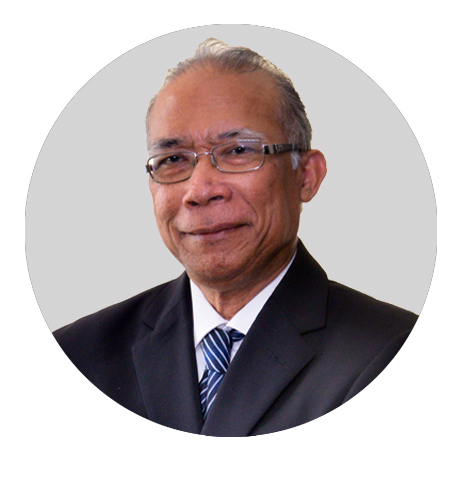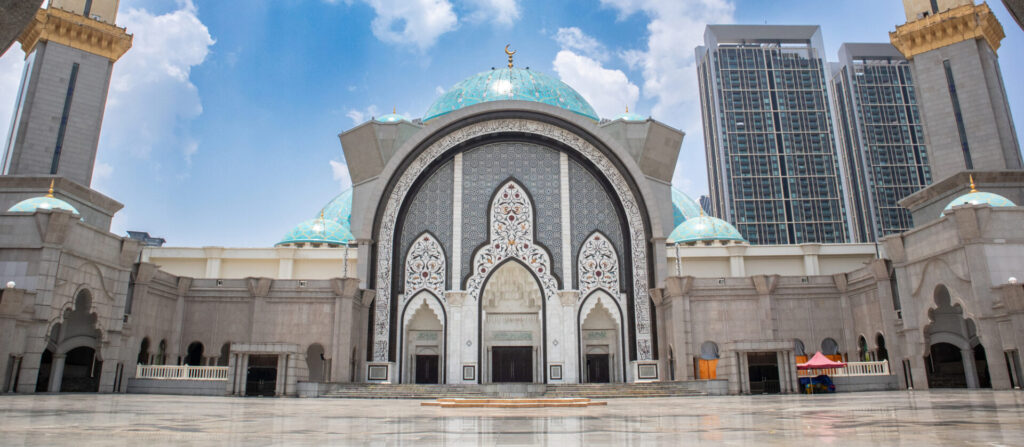By Accountants Today Team
As Malaysia embarks on decarbonising the economy, it is critical to integrate sustainability mindsets into development policies and implementation.
In line with our nation building purpose, the Malaysian Institute of Accountants (MIA) too is advocating for sustainability to drive the future relevance of the profession. In 2023, the MIA Council moved to set up the Sustainability Department within the renamed Sustainability, Digital Economy and Reporting Division. Also in 2023, MIA began work on the Sustainability Blueprint to drive sustainability initiatives at the level of the profession and the institute.
Serendipitously, the MIA Council is now captained by a keen proponent of sustainability. The new MIA President Dato’ Seri Dr Mohamad Zabidi Ahmad was elected by the Council on 1 December 2023. He was appointed as MIA Council member on 15 December 2022.

In a recent interview with the MIA e-AT team, Dato’ Seri Dr Zabidi explained that his interest in sustainability was catalysed by the need to leave “a future legacy and safe planet for future generations” amidst the increasing frequency of natural disasters, extreme climate events and geopolitical turmoil. “As a leader, I believe that we all have to embrace this sustainability agenda to protect future generations.” His extensive background in Islamic finance also predisposed him towards sustainability. “Now Islamic finance is incorporating green elements and social responsibility to achieve a higher purpose. Business must be done in a responsible manner”.
His sustainability credentials include a Certificate in Sustainable Finance Leadership by the University of Cambridge Institute for Sustainable Leadership. He is also an independent director of BIMB Investment Management Berhad, a pioneer in sustainable investment with a focus on Shariah-ESG (Environmental, Social and Governance) and the first bank-backed Islamic asset manager in Malaysia and Southeast Asia to be a signatory of the United Nations-supported Principles for Responsible Investment (UNPRI).
During the conversation, Dato’ Seri Dr Zabidi pinpointed gaps that Malaysia should bridge in order to advance its sustainability agenda, as well as the pivotal role that MIA could play in the sustainability ecosystem.
One, training and education. As a signatory to global climate action and a party to the Paris Agreement, Malaysia will need to execute its climate commitments in order to achieve its low carbon goals. This means that talents must be upskilled on climate change matters to steer and implement the national sustainability agenda.
Dato’ Seri Dr Zabidi recommended that Malaysia should focus on incorporating sustainability and climate change education in the local university syllabus. “Younger generations must be able to understand climate change matters to prepare for national emerging policies on sustainability, especially in the event that these become mandatory. Introducing climate change and sustainability training at university level is also critical to equip accountants with the foundation to navigate the sustainability landscape once they are in the workforce.”

He noted that collaboration will be necessary for sustainability to really take off in Malaysia, and that no single stakeholder can do it alone. With regards to MIA, the MIA Education Board is ideally placed to work with the Ministry of Higher Education to advocate for sustainability education, said Dato’ Seri Dr Zabidi. In addition, MIA as the regulator of the profession can develop and deliver the required professional development training. “MIA plays an especially important role in opening up access to sustainability training for SMEs and smaller corporate organisations, which are critical to sustainability given their contribution to the economy.” Through upskilling and education initiatives, MIA could advocate for informed compliance and ethical behaviour to support enforcement and sound governance in the sustainability space.
Two, financing and value creation. Sustainability requires not only mindset change but typically hefty investments. According to Dato’ Seri Dr Zabidi, Bank Negara Malaysia and Securities Commission Malaysia are spearheading efforts to accelerate the financial sector’s response to climate risk, but this is relatively easier for well-capitalised financial institutions as well as for large corporates and GLCs.
While smaller entities would look to Government funding to support climate change projects, the Government’s fiscal leeway is constrained due to economic challenges and ongoing structural and fiscal reforms. However, there is space to create value by looking into innovative finance tools that utilise Malaysia’s rich resources as potential climate solutions. “We should maximise whatever we have to generate income for the country. For example, we have a lot of forests that can be converted into forest carbon offsets that would allow forest-rich states such as Pahang, Sabah and Sarawak to monetize the carbon being stored by their trees and soils and sell it on the carbon market, where there is high demand,” suggested Dato’ Seri Dr Zabidi.
On top of his passion for sustainability, Dato’ Seri Dr Zabidi is a banking veteran, with 38 years of experience spanning group treasury, corporate, interbank, marketing, fixed income and derivatives, product development and structuring. A pioneer in the Islamic finance industry, he was responsible for developing the Islamic Treasury franchise for the CIMB Group regionally including United Kingdom, Singapore, Indonesia, Brunei and Thailand since 2006. His milestones include leading the development of a very limited slate of initial products to matching about 99.9% of the products available in the conventional space when he left the bank in 2021. “I am pleased that I was able to lead my team to be more innovative, and achieve the targets or KPIs assigned in Malaysia as well as in the Asian region. Today, we (CIMB Islamic) are very big in Malaysia, Singapore and Indonesia, and we also have a presence in London.”

During his tenure at CIMB, Dato’ Seri Dr Zabidi was also appointed as the Chairman for the Treasury Market Committee with the Association of Islamic Banking and Financial Institutions Malaysia (AIBIM). “During this period, I made sure that the market really moved towards standardization to resolve the challenge of non-standardised documentation plaguing the Islamic finance industry. Other key initiatives included facilitating easy trading between markets and working with the Malaysia International Islamic Finance Centre (MIFC) on Islamic finance missions to international financial capitals to promote Islamic finance and sukuk issuance, including sukuk issuances by the Hong Kong and UK governments.”
Asked about his aspirations for MIA and the profession, Dato’ Seri Dr Zabidi said that he intends to focus on advocating for the sustainability agenda, to ensure that members in all segments (public practice, commerce and industry, public sector and academia) are well-versed on matters relating to sustainability, such as climate change, social responsibility, and governance. Priority should be placed on areas relevant to the profession such as Task Force on Climate-Related Financial Disclosures (TCFD), sustainability reporting, environmental taxation, carbon credits and carbon taxation.
Dato’ Seri Dr Zabidi is also a member of the Institute of Corporate Directors Malaysia (ICDM). Asked about potential collaborations, Dato’ Seri Dr Zabidi suggested that MIA could explore offering board training in specialised areas like accounting, taxation and corporate and financial disclosures. “It is especially important for Boards to understand annual reports and disclosure because they are the ones with liability for financial and non-financial information.” Furthermore, sustainability reports are becoming increasingly important as a means for investors to assess the sustainability of companies and to make informed decisions.
Dato’ Seri Dr Zabidi strongly holds to the adage that learning never stops, and recently completed the Oxford Executive Leadership Programme at the Sa’id Business School of Oxford University. He also holds a Doctorate in Business Administration from the Othman Yeop Abdullah Graduate School of Business (OYAGSB), Universiti Utara Malaysia (UUM) and a Bachelor’s in Accounting with Honours from Universiti Teknologi MARA (UiTM), along with chartered qualifications in Islamic finance from the Chartered Institute of Islamic Finance (CIIF).







